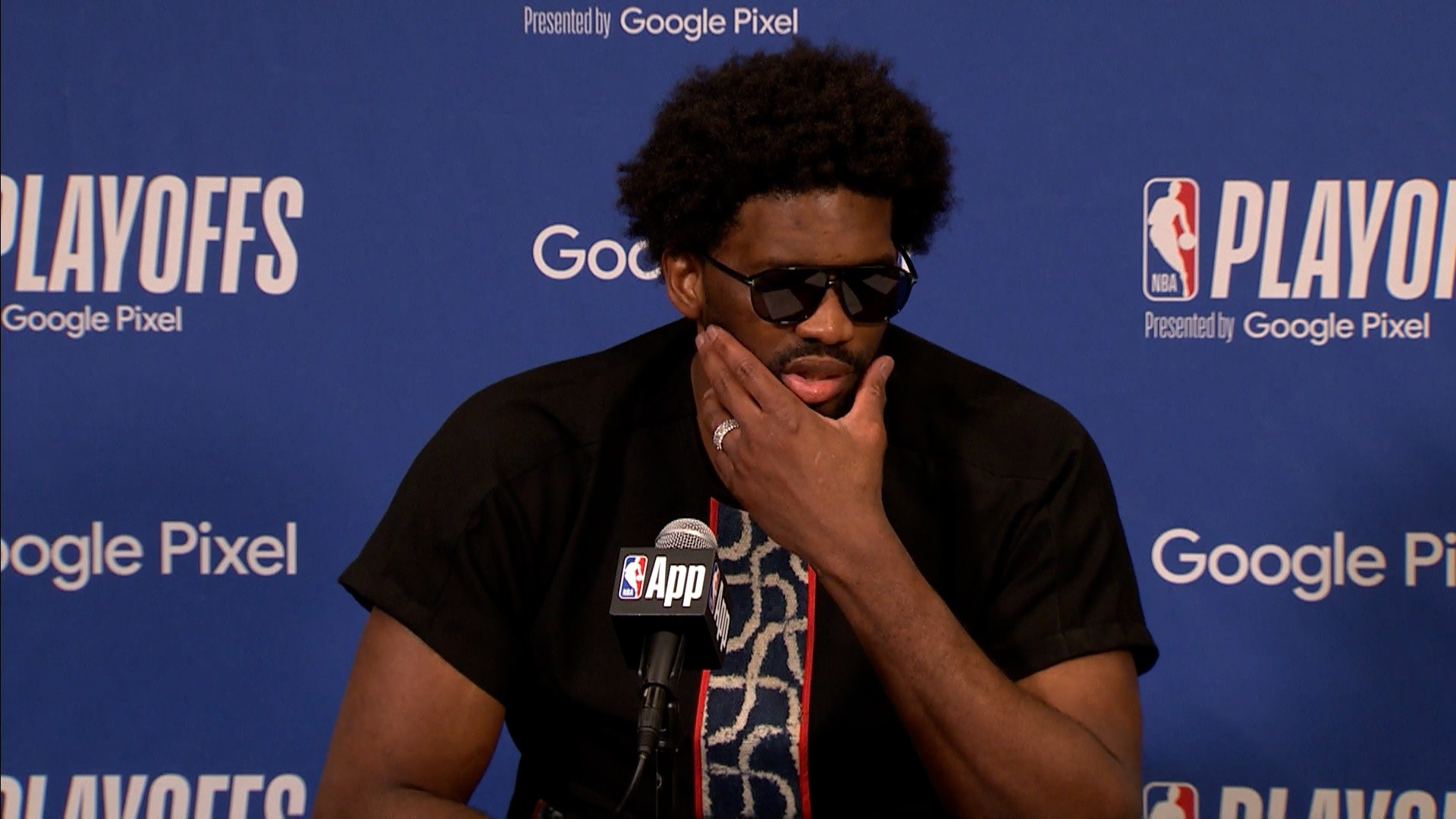
That 38-yard touchdown run by Chris Polk? He needed it, badly.
“That definitely took me back to college,” Polk said. “Just confidence-wise, I needed that.”
Polk, the second-year Eagles running back, doesn’t get many handoffs. That kind of happens when you share a locker room with the NFL’s leading rusher and a second-year halfback who last year set a two-game rookie rushing record.
Stay in the game with the latest updates on your beloved Philadelphia sports teams! Sign up here for our All Access Daily newsletter.
Before his 38-yard touchdown run against the Lions on Sunday, icing on the cake of a 34-20 win, Polk had carried the ball just five times all year. All career, actually.
And though Chip Kelly suggested this week that Polk’s four-carry, 50-yard effort against Detroit warranted him more handoffs going forward, Polk isn’t any less motivated to showcase himself.
“You can’t win tomorrow’s game off yesterday’s touchdown,” he said, “so you’re either getting better or worse.”
Polk isn’t griping about playing third-fiddle behind LeSean McCoy and Bryce Brown, especially since he’s already overcome bigger problems than his placement on the depth chart.
News
One of them is an ongoing battle with Attention Deficit Hyperactive Disorder (ADHD), an affliction he was diagnosed with in 2009 while at the University of Washington. Although he takes prescription Adderall to treat his condition, Polk said he still struggles at times to maintain focus.
Concepts that come easier to some of his teammates, like reading playbooks and learning terminology, require extra effort for Polk.
“I sure do, because I tend to forget things easily, misplace, not [be] organized,” he said. “It’s just really hectic. If you let that get the best of you, there’s no way to come back.”
Adderall is a banned substance by the NFL because of its potential performance-enhancing value, but exemptions are granted for those who undergo a psychiatric exam and are deemed to need the medicine.
“You do like a five-hour test with a psychiatrist, and it’s like a real IQ test with blocks and stuff,” Polk said. “They’ll have to read you [questions], like, ‘What does this word mean?’ or ‘What does the sun and moon have in common?' Stuff like that.”
Polk said his college grade-point average jumped from the neighborhood of 2.0 to 3.26 the following semester at Washington after he started his medication. He had no problem adapting into the Huskies' offense. Polk went over 1,000 rushing yards for three straight seasons and finished his college career with 4,049 rushing yards, a 5.1 yards-per-carry average and 26 rushing touchdowns.
“Changed my life, man,” he said. “It changed my life.”
Ironically, Polk’s ADHD is one of the driving forces that steered him into sports. When his mother finally had enough of her son climbing on furniture and underperforming in school, she made him play football to give him a positive outlet for his perpetual energy.
“She just got tired of chasing me,” he said. “She was like, 'You know what, I’m going to put you in sports so when you come home you’re tired and just want to go to sleep.'”
The medicine helped Polk maintain focus but didn’t cure his dread for long, monotonous practices and couldn’t remedy other injuries, like the turf toe he sustained as a rookie that sidelined him for the final eight games of the season. He finished the year without a carry.
Fortunately for Polk, the Eagles hired former Oregon coach Kelly in January after firing longtime coach Andy Reid.
Polk had battered the Oregon defense during his days in the Pac-12 conference, so Kelly knew the kind of talent Polk had. Kelly’s fast-paced practices with upbeat music blaring over the speakers keeps Polk locked in and interested.
Kelly wasn’t the least bit surprised to see Polk shoot through scrimmage, break a tackle and scamper 38 yards Sunday against the Lions for a touchdown. Not only had he seen Polk torment his Oregon defense, but he had also noticed an uptick in Polk’s practices lately.
“The one thing I knew about Chris is he was just a tough, hard‑nosed, physical football player,” Kelly said. “I mean, he had a thousand -- I'm exaggerating -- but he had like 1,000 carries in college. He was the workhorse for the University of Washington, and they just ran him and he kept getting stronger and stronger as the game went along.”
Kelly didn’t directly say Polk would leapfrog Brown on the depth chart, but Brown is averaging just 2.9 yards per carry this season, with 188 yards on 64 carries. He barely resembles the power runner who rushed for 347 yards and four touchdowns in his first two NFL starts. Polk’s 86 yards are roughly half Brown’s total, but he’s carried the ball about one-sixth the number of times Brown has.
Polk’s four carries against Detroit were his most of the season. On Monday, Kelly emphasized that competition is always open.
“And you keep showing us that you deserve time on the field, then that's what it's all about,” Kelly said, adding that Polk “warranted the time he got” against the Lions.
But if he doesn’t get more Sunday against the Vikings, Polk won’t sob.
“Good things come to those who wait,” he said. “We definitely have a lot of good guys, so I’m not mad about that or anything. The only thing you can control is your effort, so I’m going to do everything I need to do to get on the field. And when I do, I have to make things happen.”


